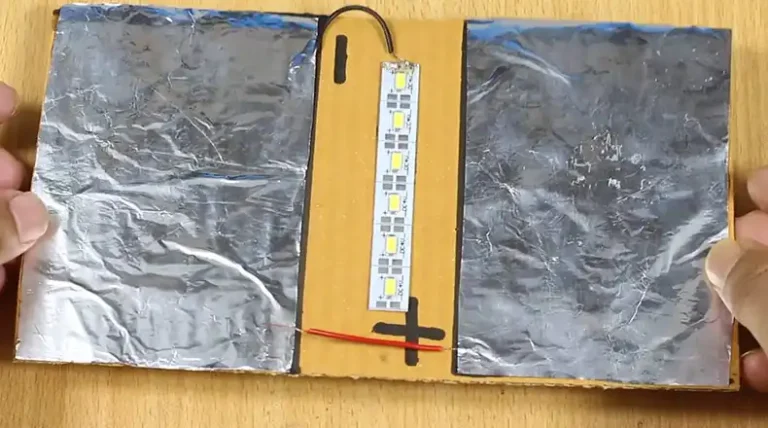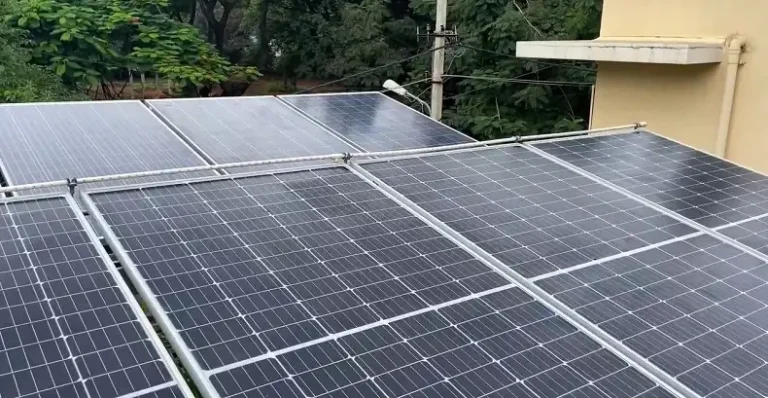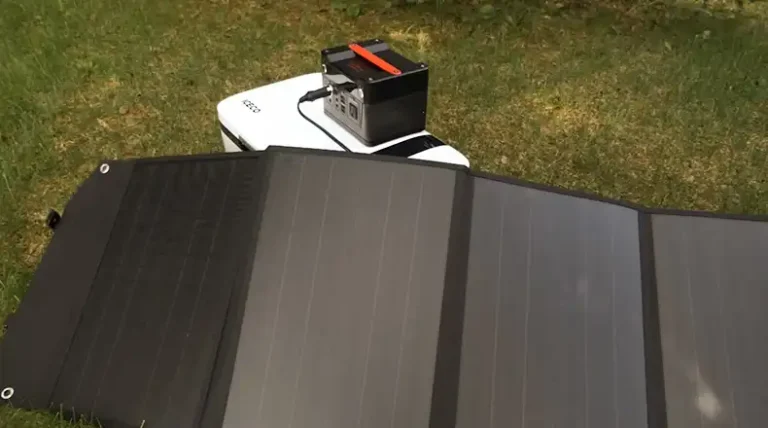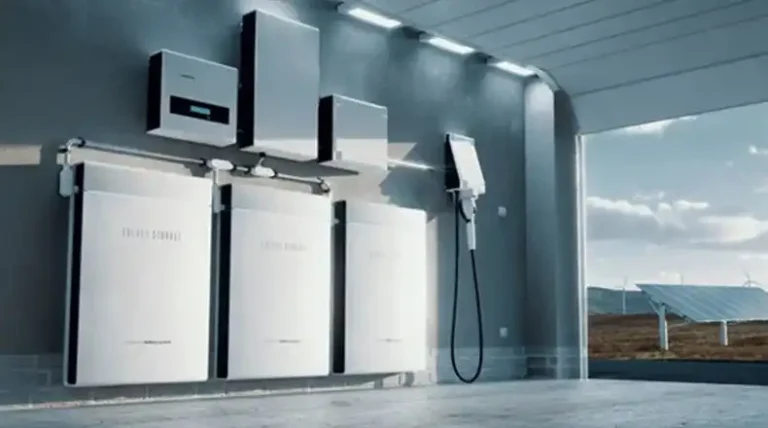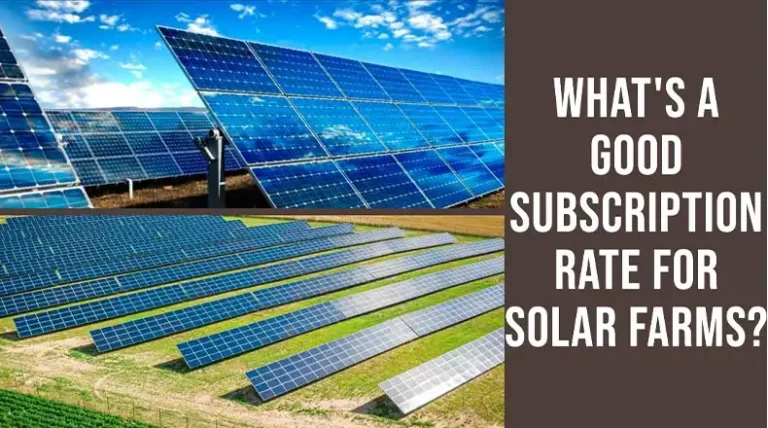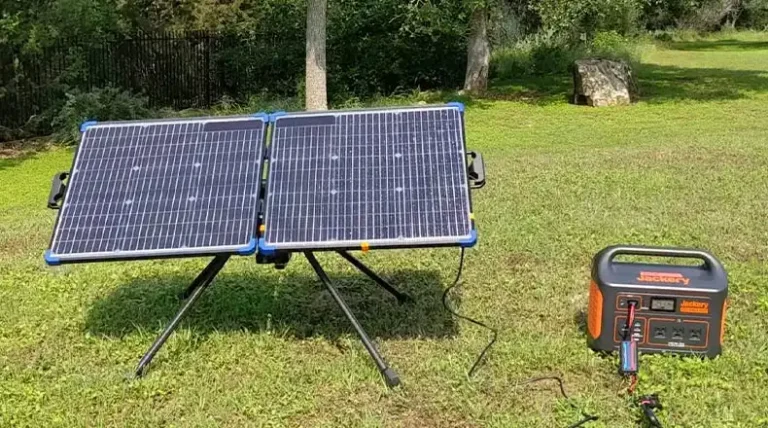Can I Use AC Cable For Solar Panel?
Solar panels are becoming increasingly popular as a renewable energy source. With the rise of solar power systems, it’s crucial to understand the proper components needed for installation. One essential component is the cables used to connect the solar panels to the rest of the system. And in terms of cables, often a question arises whether it’s possible to use AC cables for solar panels.
While it may seem like a simple solution to use readily available AC cables, the truth is that these cables are not designed for the specific requirements of solar panel systems. In this article, we’ll explore the reasons why AC cables are not recommended, the suitable cable types for solar panels, and what to consider if you must use AC cables as a last resort.
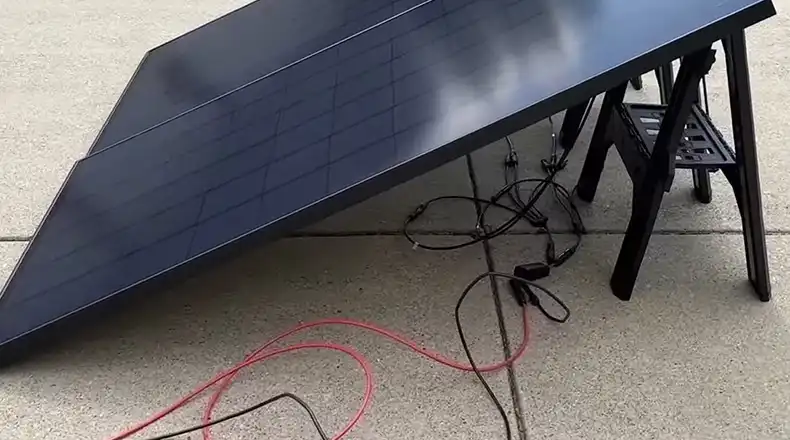
Is It Okay to Use AC Cable For Solar Panel?
It is generally not recommended to use AC cables for solar panels.
Solar panels generate DC electricity, which is different from the AC used in residential and commercial buildings. AC cables are designed to carry alternating current and may not have the necessary properties to handle the DC power generated by solar panels efficiently and safely.
Using AC cables with solar panels can lead to several potential issues –
Voltage Drop: AC cables are typically rated for lower voltage levels compared to the voltage range produced by solar panels. This can result in a significant voltage drop over long cable runs, reducing the overall efficiency of the solar system.
Insulation Degradation: The insulation materials used in AC cables may not be suitable for the DC voltage and environmental conditions encountered in solar installations. Prolonged exposure to sunlight, heat, and moisture can cause premature insulation degradation, leading to potential safety hazards and system failures.
Grounding and Bonding: AC cables have specific grounding and bonding requirements that may not align with the requirements for solar panel systems. Improper grounding can create safety risks and potentially damage sensitive electronic components in the solar system.
Code Compliance: Most electrical codes and regulations specifically mandate the use of DC-rated cables for solar panel installations. Using AC cables may violate these codes, potentially leading to legal issues and voiding warranties or insurance coverage.
While it may be tempting to use readily available AC cables for cost or convenience reasons, doing so can compromise the safety, performance, and longevity of your solar panel system. It’s generally recommended to use cables specifically designed and rated for solar panel applications to ensure optimal system performance and compliance with applicable codes and standards.
Which Cable Is Perfect for Solar Panels & Why?
The ideal cable for solar panels is called a “solar cable” or “photovoltaic cable”.
Solar cables, also known as photovoltaic or PV cables, are specifically designed to meet the unique requirements of solar panel installations. These cables offer several advantages over traditional AC cables, making them the perfect choice for solar panel systems.
Here are the key reasons why solar cables are the preferred option –
DC Rating
Solar cables are rated for DC voltages typically ranging from 600V to 2000V. This ensures they can handle the DC power generated by solar panels without significant voltage drops or safety concerns.
Sunlight Resistance
Solar cables are constructed with insulation materials that are resistant to UV radiation and harsh outdoor conditions. This helps prevent premature degradation and ensures long-term reliability even when exposed to direct sunlight.
Temperature Tolerance
Solar cables are designed to withstand a wide range of temperatures, from extreme heat to freezing conditions. This is crucial as solar panels can operate in various climates and weather conditions.
Flexibility and Durability
Solar cables are often made with flexible and durable materials, such as cross-linked polyethylene (XLPE) or ethylene-propylene rubber (EPR). This allows for easier installation and ensures the cables can withstand mechanical stress and environmental factors without compromising performance.
Code Compliance
Using solar cables ensures compliance with electrical codes and regulations specific to solar panel installations. This not only enhances safety but also helps maintain warranty coverage and insurance eligibility.
Conductor Sizing
Solar cables typically have larger conductor sizes compared to AC cables of the same voltage rating. This helps minimize resistance and voltage drop, ensuring maximum power transfer from the solar panels to the inverter or charge controller.
By choosing solar cables specifically designed for photovoltaic applications, you can ensure optimal performance, safety, and longevity for your solar panel system. While these cables may come at a higher initial cost, the long-term benefits and peace of mind they provide make them a worthwhile investment.
How Do You Choose AC Cable for Solar Panel If You Must Use It?
If you find yourself in a situation where using AC cables for solar panels is unavoidable, there are certain considerations to keep in mind.
While it is generally not recommended, there may be circumstances where using AC cables for solar panels is the only available option. In such cases, it’s important to choose the right AC cable and take necessary precautions to minimize potential issues.
Here are some guidelines to follow when selecting AC cables for solar panel installations:
- Choose AC cables with a voltage rating that exceeds the maximum voltage output of your solar panel array. This will help prevent voltage drop and ensure safe operation.
- Opt for AC cables with larger conductor sizes to minimize resistance and reduce voltage drop over long cable runs. Consult local electrical codes to determine the appropriate conductor size based on your system’s specifications.
- Look for AC cables with insulation materials that can withstand outdoor conditions, such as sunlight exposure, temperature extremes, and moisture. Cables with XLPE or EPR insulation are generally more suitable for solar installations.
- Minimize the length of AC cables used in your solar panel system. Longer cable runs can lead to increased voltage drop and power losses, reducing the overall efficiency of your system.
- Ensure proper grounding and bonding of the AC cables according to local electrical codes and regulations. Consult with a qualified electrician or refer to the manufacturer’s installation guidelines.
- Protect AC cables from physical damage, UV exposure, and environmental factors by using appropriate cable raceways, conduits, or cable trays designed for outdoor installations.
- Regularly inspect and monitor the performance of your solar panel system when using AC cables. Look for signs of insulation degradation, voltage drop, or other issues that may indicate the need for cable replacement.
It’s important to note that using AC cables for solar panels is not an ideal solution and should be considered a temporary or last-resort measure. If possible, it’s highly recommended to invest in solar cables or consult with a professional solar installer to ensure the proper selection and installation of cables suitable for your solar panel system.
Final Thought
In conclusion, while it is generally not recommended to use AC cables for solar panels, there may be situations where it becomes a necessity. In such cases, it’s crucial to choose the right AC cable and take necessary precautions to minimize potential issues and ensure safe operation.
Remember, solar cables, also known as photovoltaic PV cables, are specifically designed to meet the unique requirements of solar panel installations. They offer superior performance, durability, and compliance with electrical codes and regulations.
If you have any further questions or need assistance in selecting the right cables for your solar panel system, feel free to leave a comment below. We’ll be happy to provide additional guidance and ensure you make an informed decision for your renewable energy setup.

